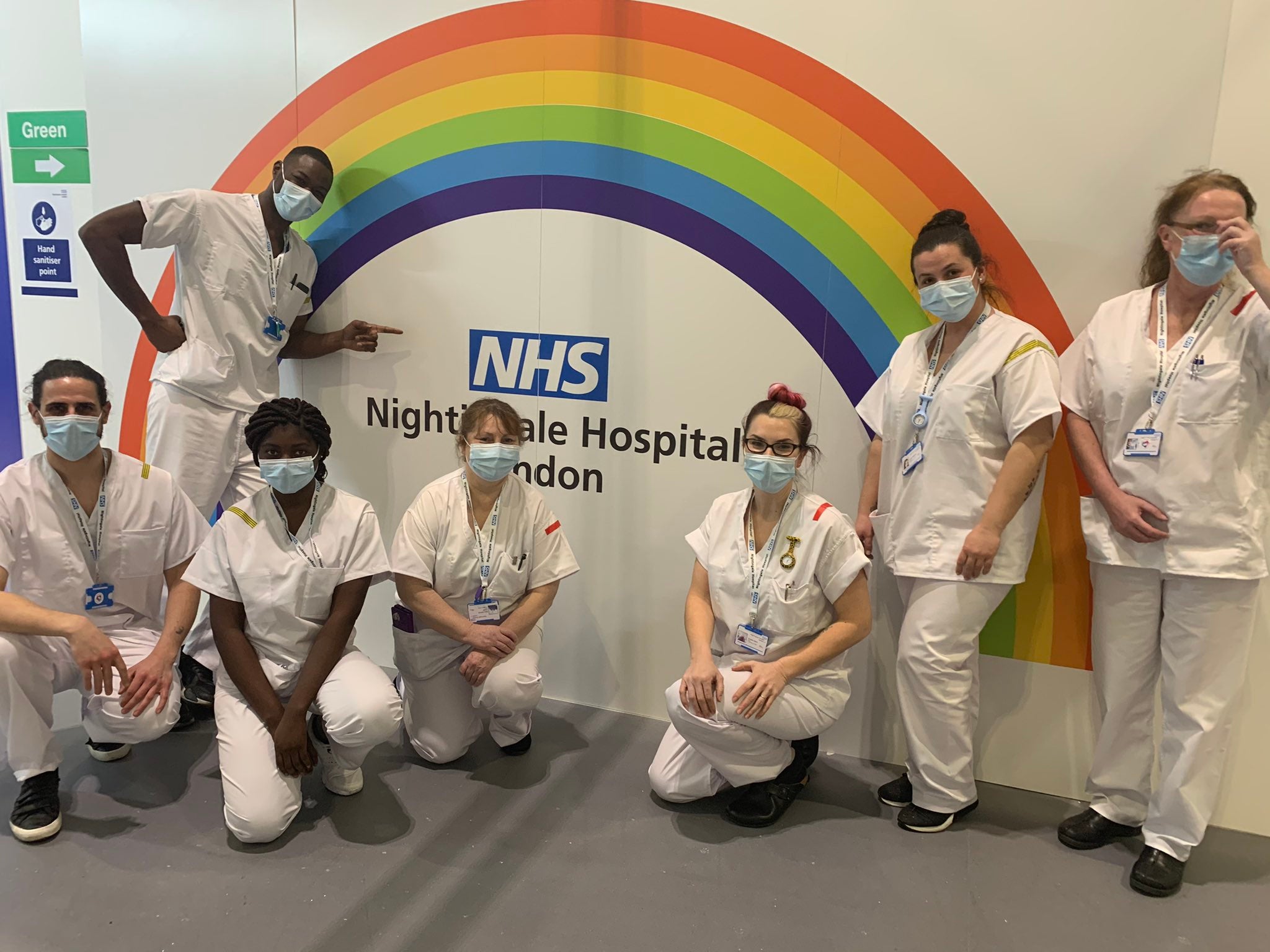NHS Nightingale: How reopened London hospital will be used to manage patients
London’s Nightingale Hospital has re-opened to recovering Covid-19 patients

London’s NHS Nightingale Hospital has now officially opened after being rebuilt in a just a matter of weeks.
The field hospital, based in London’s ExCel Conference Centre, has an initial capacity for 64 patients over two 32-bed wards and is designed to help alleviate pressures on the capital’s swamped hospitals.
The Nightingale welcomed staff from across London on Monday for training and had just one patient so far on Tuesday.
Unlike last time, the Nightingale has been designed to look after patients who are recovering from Covid-19 and are almost ready to be discharged.
Leaked clinical criteria for admission to the field hospital reveal patients will only be accepted for a bed if they have tested negative twice for Covid-19.
If they need oxygen, they must be on the lowest normal dose of two litres a minute.

Patients must also be classed as having a low clinical risk to be accepted by the Nightingale, which is being run by the North East London Foundation Trust (NELFT).
The patients may need some rehab therapy or to wait for a care package to be arranged before they can go home.
Patients who need feeding through a tube in their throat, are near the end of life, or recovering from mental health or drug and alcohol abuse will also be excluded.
Pictures from inside the hospital show rows of single bedded areas with a chair and partition walls with a poster displaying a rural landscape or other calming scene.
It’s a far cry from the original plans for the hospital – a 4,000 bed warehouse for ventilated and critically ill Covid patients set up in April ahead of an expected surge of tens of thousands of sick patients.
In the end, the hospital treated less than 60 patients in the first wave – primarily because of a lack of staff to run it safely and because the hospital itself was not capable of treating the most severely ill.
Nicki Credland, chair of the British Association of Critical Care Nurses told The Independent the hospital was effectively a warehouse waiting room for patients “virtually ready to go home”.
She added: “Two litres of oxygen is normally the lowest dose we would give for most patients.
“There is a big difference in the rehabilitation needed for a healthy person recovering from Covid-19 after a week and almost ready to go home and a patient who has spent a month in intensive care and then a month on a ward before going home.
“Rehabilitation is a very specialist area.”

Sharing photographs from inside the Nightingale Hospital on twitter Oliver Shanley, chief executive of the North East London Foundation Trust said: “Thank you to all our NELFT team and our colleagues across London, who have worked tirelessly over the last two weeks to get NHS Nightingale Hospital London ready as a community rehab unit to open and care for non-Covid patients.”
Other staff posted pictures as they started their training and posed by the entrance to the new wards.
NHS England made the decision to “reactivate” the Nightingale Hospital in London after Christmas, when it became clear the surge in patients in hospitals across London risked the capital running out of beds.
Despite the site being dismantled in the autumn, construction teams worked flat out to rebuild the new layout and last week NHS England issued an appeal for hospitals to send nurses and doctors to staff the unit.
NELFT said it was not allowed to comment by NHS England, who did not respond before publication.
Join our commenting forum
Join thought-provoking conversations, follow other Independent readers and see their replies
Comments
Bookmark popover
Removed from bookmarks